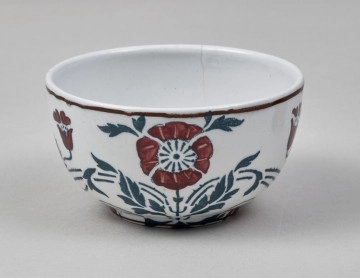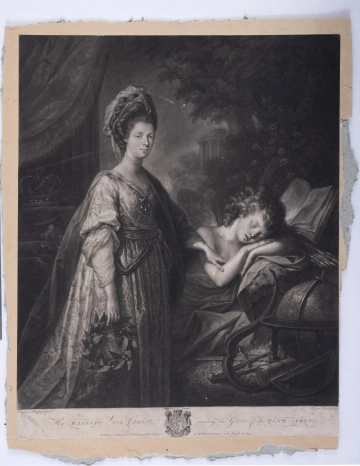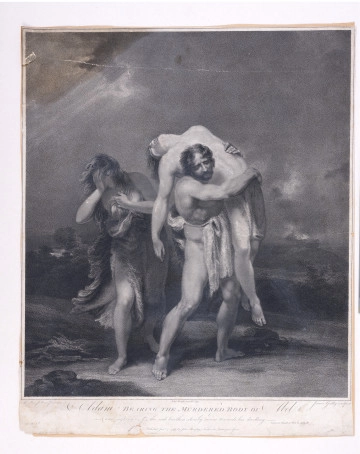
Cup
początek XX w.
Castle Museum in Łańcut
Part of the collection: History of the city and the region
The Hanukkah lamp used during Hanukkah usually had the form of a lamp with a back with eight vessels, oil pipes or candlesticks were installed on an elongated piece. It could also take the form of an eight- or nine-branched menorah or chandelier. Travel lights, in the form of boxes with a lid, were also used at the time. This lamp has a trough-shaped container divided by compartments into 8 parts, each of which has a forward-facing spout. It was made of brass, some were also made of silver, often using the technique of filigree, plating and faience techniques. Like other lamps, the Hanukkah lamps came in many shapes, they also featured rich ornamentation and symbols. In this case the openwork back is adorned with a seven-branched menorah supported by two lions standing on a pedestal, with outwards-facing birds to the sides. Hanukkah lights were lit every day during Hanukkah, after sunset, starting from her left side – one ore light would be lit every day. Unlike lights lit on the Sabbath or other holidays, the light of Hanukkah lamps could not be used for practical purposes. Another religious obligation concerned using an additional light source to light them. In many cases, this meant that an additional light – shammes – was added to them, which would be used to light the other burners. This lamp features a spline on the right side, which held this additional piece. In some of these lamps, in addition to the shammes, they featured another burner, resuilting in a total of ten, and sometimes more, light points. These extra lights were lit on the Sabbath during the Hanukkah. At that time, the lamp served as a Hanukkah and Shabbath lamp. The Hanukkah candlestick was also placed in the synagogue, on the right side of the aron (ha-)kodesh, as a reminder of the menorah. This was the only case when this candlestick was referred to as a menorah – the name used for a seven-branched candlestick. Joanna Kluz
Object type
History of the city and the region
Owner
Castle Museum in Łańcut
Identification number
Location / status

początek XX w.
Castle Museum in Łańcut

1772
National Museum in Szczecin

1799
National Museum in Szczecin
DISCOVER this TOPIC
National Museum in Lublin
DISCOVER this PATH
Educational path